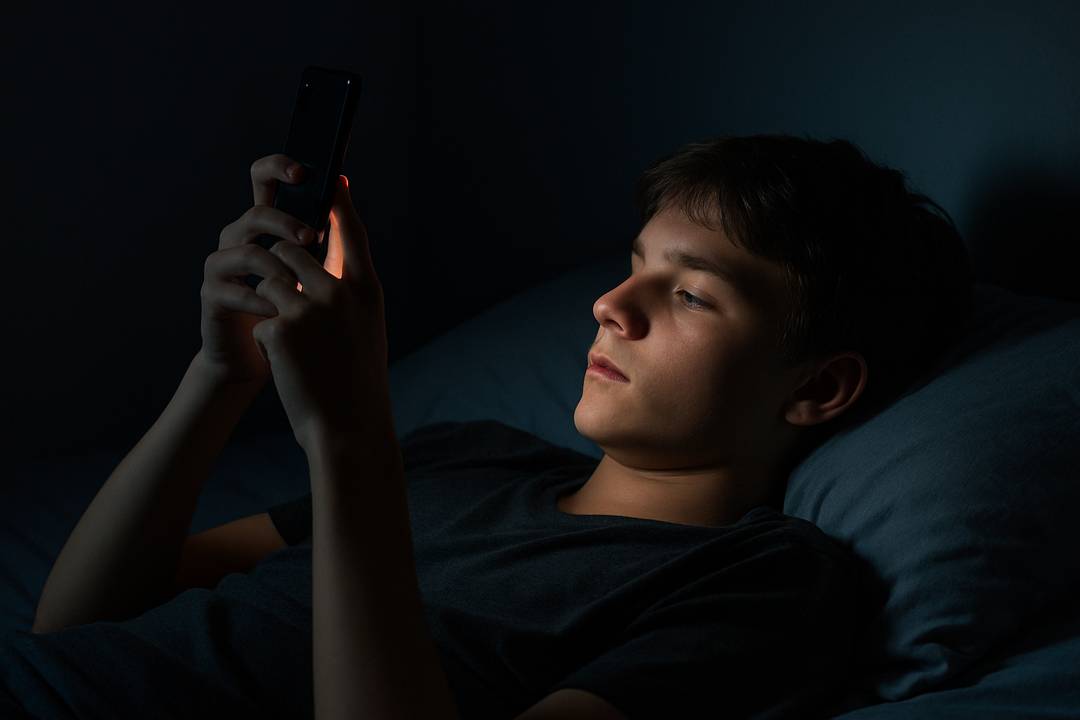I have this recurring breakfast scene: I’m buttering toast, my 12‑year‑old is reading out the latest casualty count from a conflict I didn’t even know existed yet, and my wife is trying to remind him he still has to unload the dishwasher. The modern family breakfast table is starting to look like a newsroom, and it isn’t doing any of us any favors.
A new study of more than 100,000 young adults from the Global Mind Project found that kids given a smartphone before they turned 13 were far more likely to struggle with suicidal thoughts, aggression, detachment from reality and low self‑worth. Girls who were handed phones at ages five or six had nearly twice the rate of suicidal ideation compared with those who waited until age 13. Both boys and girls reported less self‑esteem and empathy when they got their own device early. When a device gives you access to endless content and constant feedback, self‑image becomes a moving target; no wonder empathy suffers.
Researchers noted that social media accounts explained about 40 percent of the link between early phone ownership and poor mental health. The rest came from the usual suspects: poor family relationships, not enough sleep, and the digital equivalent of the school bully who follows you home. They aren’t saying kids never get phones; they’re pleading with us not to toss one into a grade‑school backpack and hope for the best. We might be the first generation of parents who have to talk to our kids about algorithmic bias and clickbait as part of the birds and bees conversation.
If that wasn’t enough, a separate UNICEF‑led study of more than 5,600 teens and young adults across the Middle East shows that constant exposure to global crises is overwhelming them. Sixty percent of Gen Z surveyed said keeping up with the news makes them feel helpless, and two‑thirds feel more overwhelmed by world events than by local issues. Psychologists in the study warn that endless scrolling on social media isolates youth from real‑life interactions and amplifies negativity.
It’s no wonder: nearly half of the participants rely on social platforms as their primary news source. Their brains aren’t done developing yet, so they lack the filters many of us adults take for granted. Forty percent said they avoid seeking help for mental health issues because of stigma and limited resources. When your child’s handheld window into the world is dominated by war, climate catastrophes and the latest influencer scandal, is it any surprise they can’t sleep? Our own parents worried about us listening to our Walkmans too loud; now we have to think about digital doomscrolling.
As parents, we can’t unplug the world. But we can delay the delivery system. Try holding off on a personal smartphone until around age 13 and even then, start with training wheels: no phones in the bedroom, screen‑free dinners, and parental controls that aren’t just suggestions. Teach them how to read news critically rather than letting TikTok decide what they care about. Encourage them to ask questions when they hear frightening headlines. When they see a bleak story about conflict, talk through how to evaluate sources and remind them there are helpers too. Check your own habits; nothing kills a “no screens at dinner” rule faster than mom answering emails under the table.
Most importantly, be present. Mental health thrives on connection, not notification pings. If your teenager seems glued to the apocalypse, remind them that there is also joy in watching a sibling learn to ride a bike, or in burning pancakes together on a Saturday morning. Phones are tools, not babysitters. The generational pattern of handing down phones like candy is relatively new, and it’s okay to break it. The apocalypse can wait—and so can that group chat.
Sources:
[1] UPI – “Early smartphone access harms developing minds, study warns”
[2] Arab News – “How news from the Middle East is shaping Gen Z’s mental well-being”







Leave a Reply
You must be logged in to post a comment.